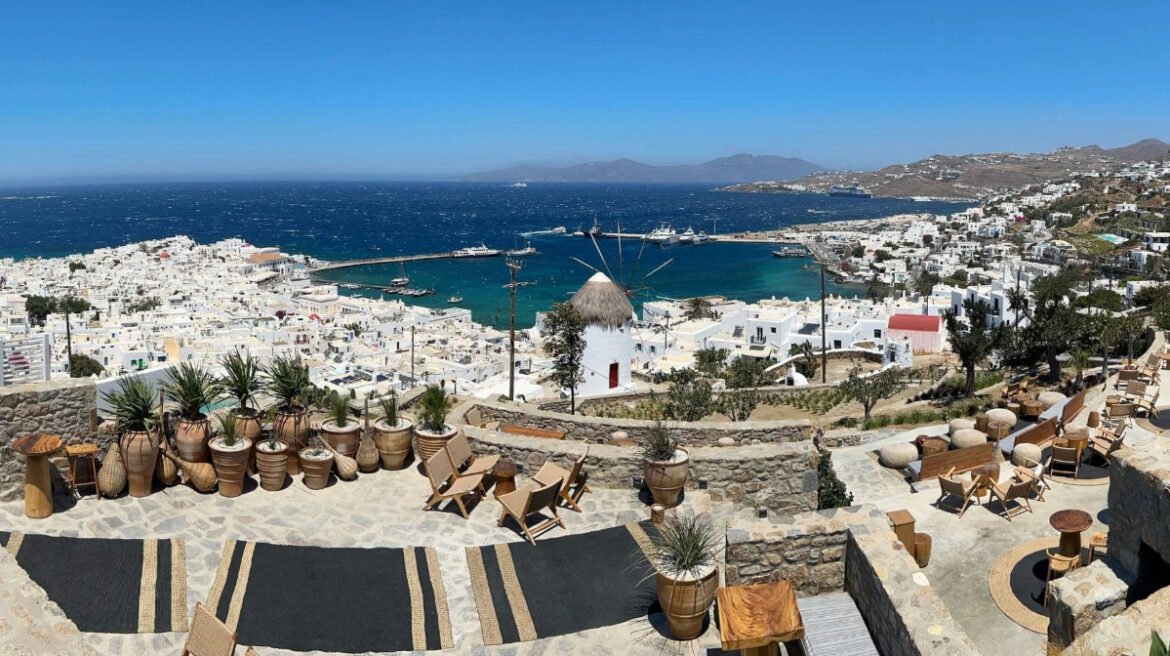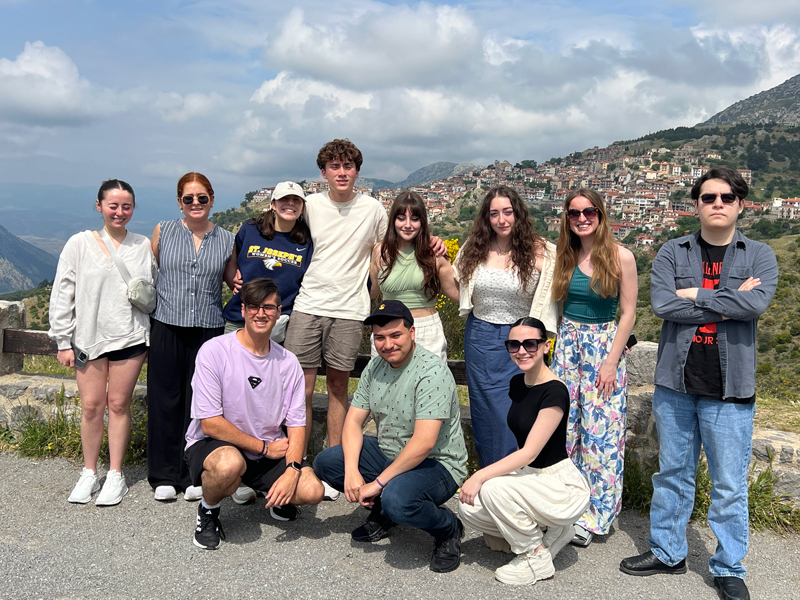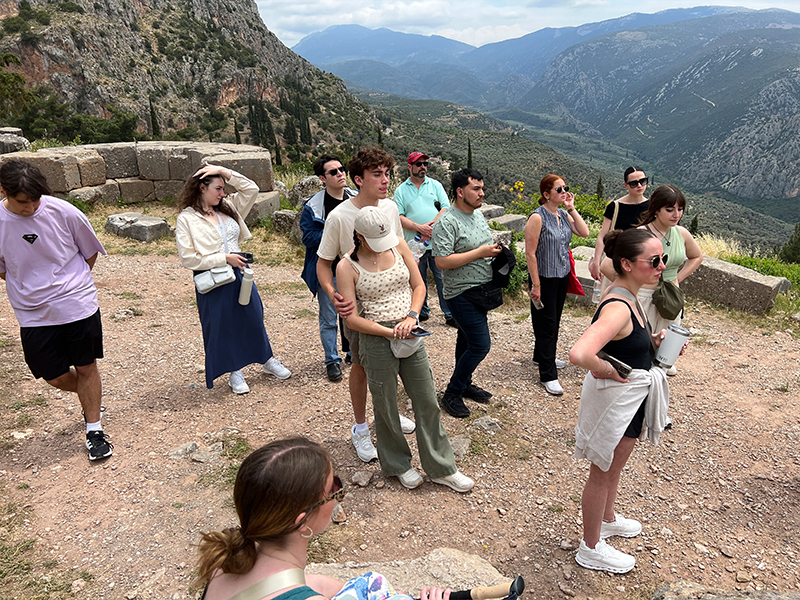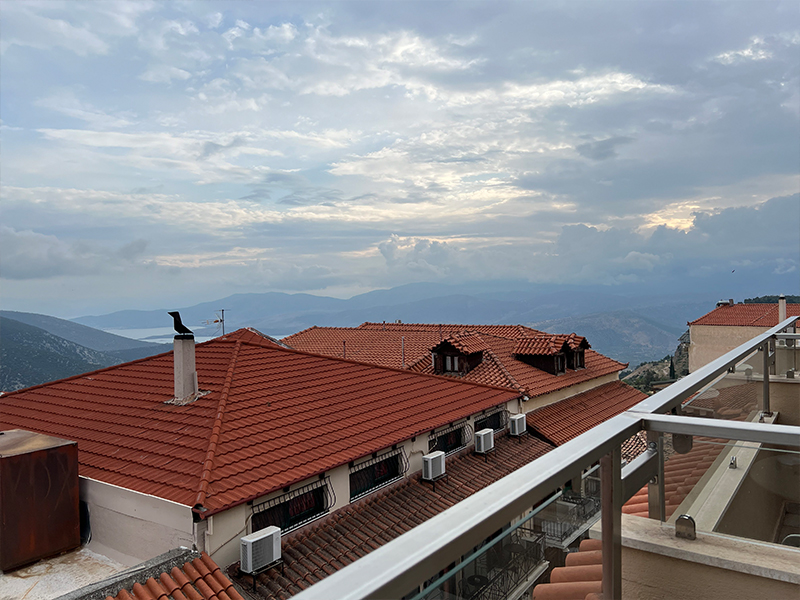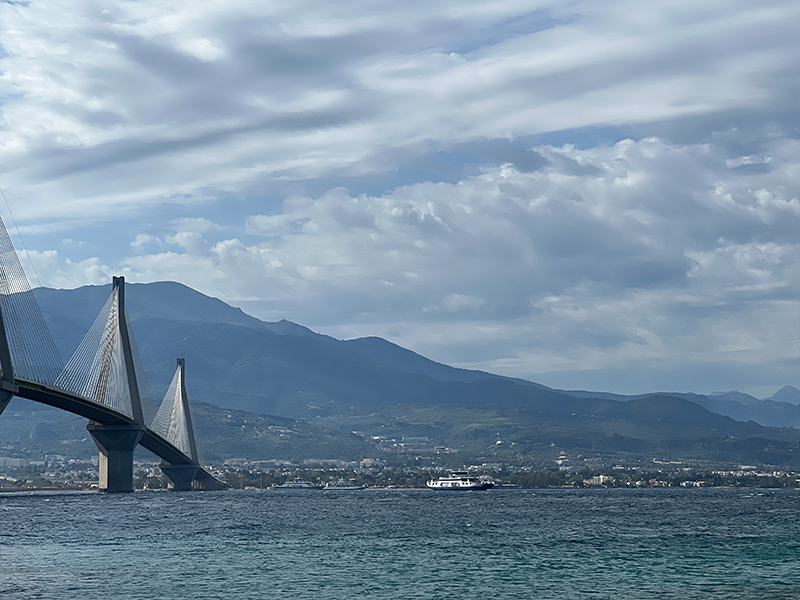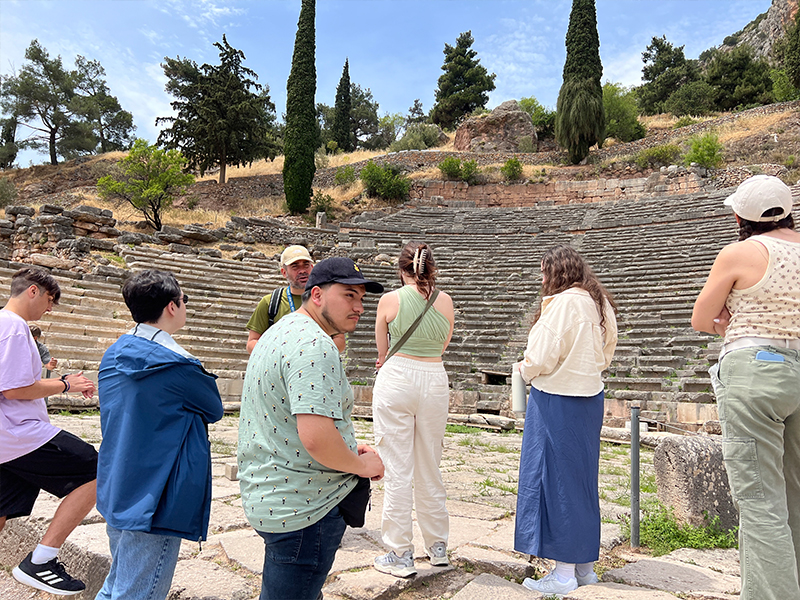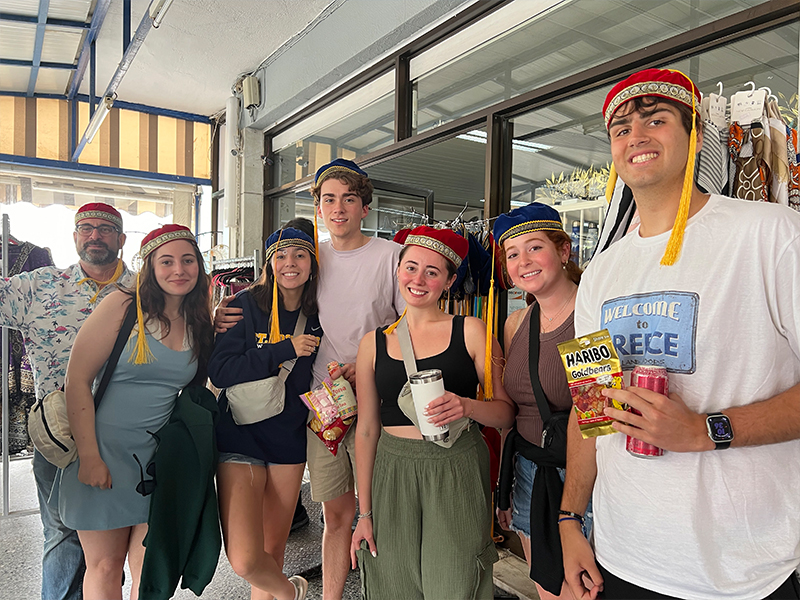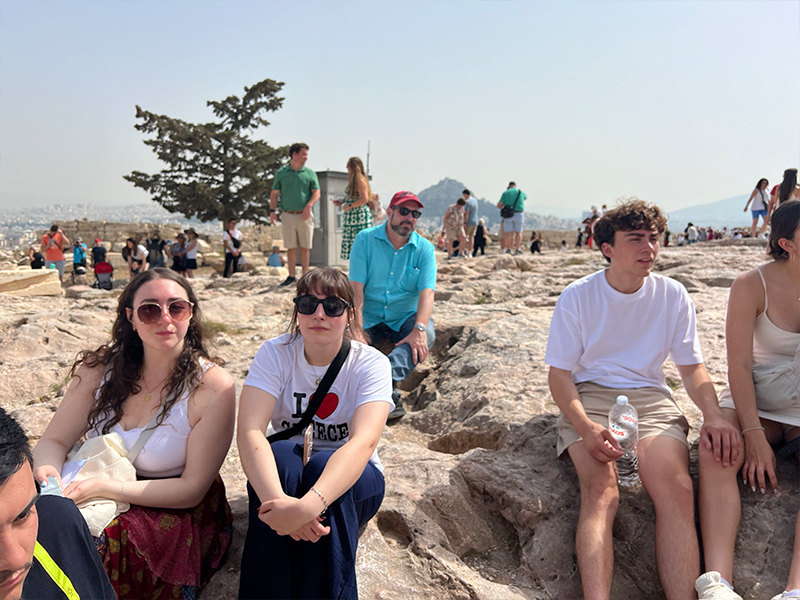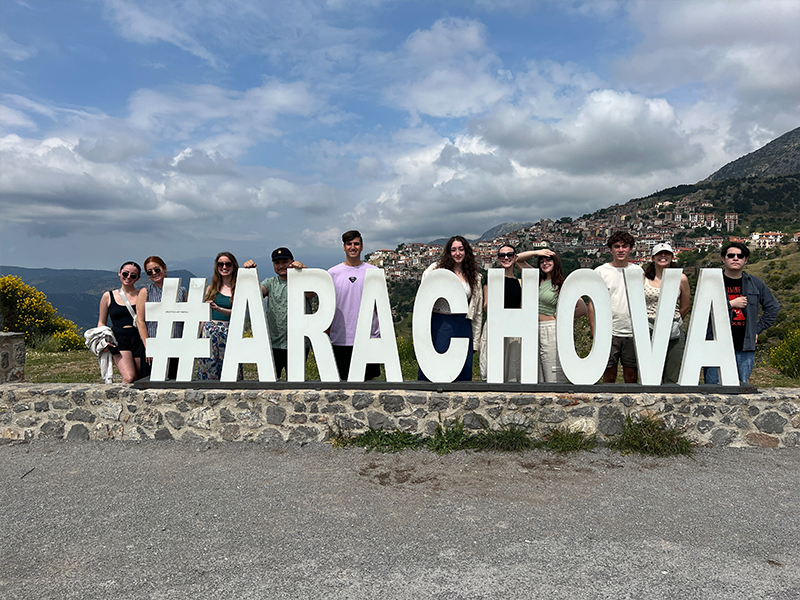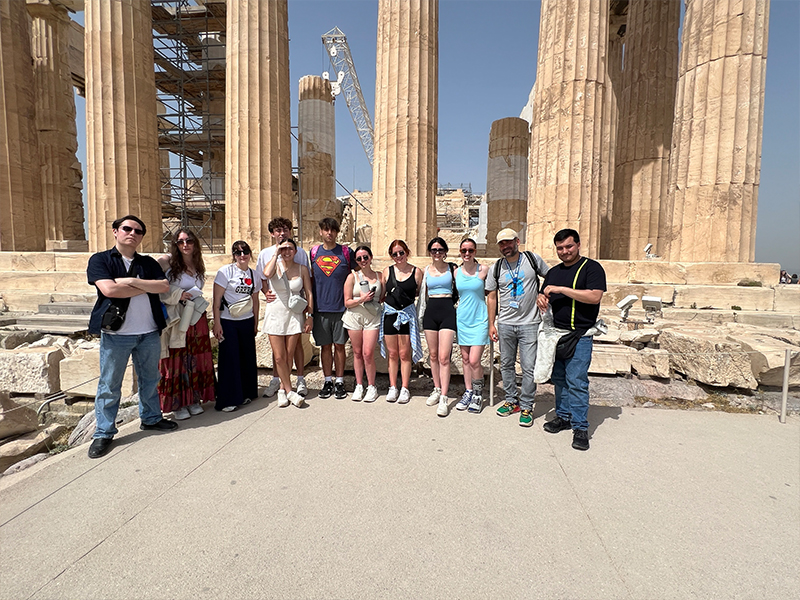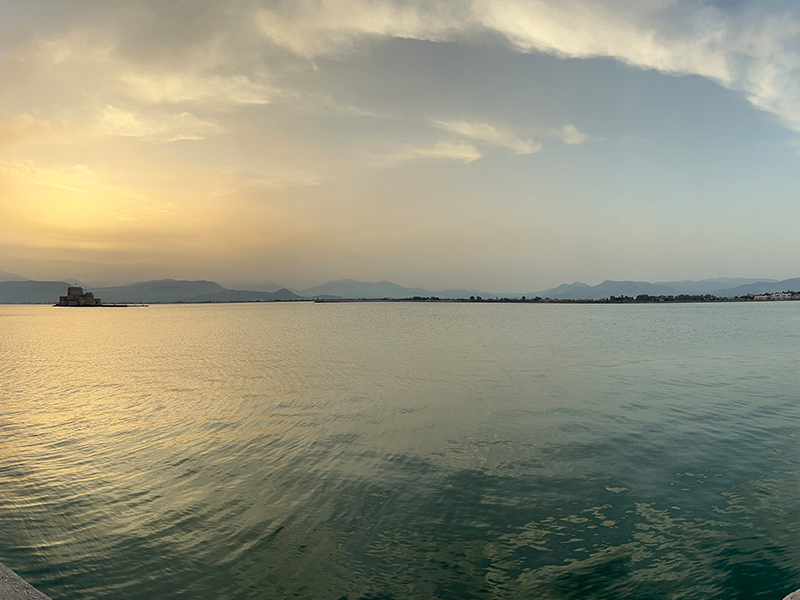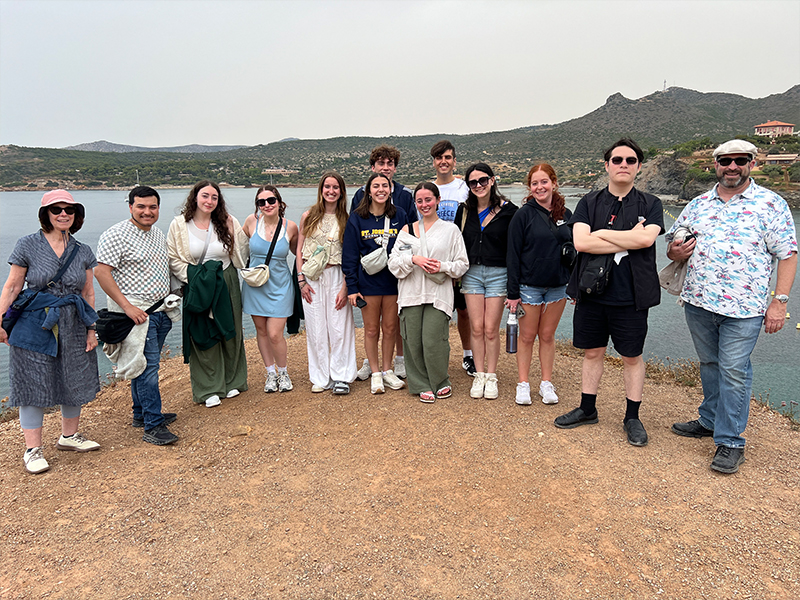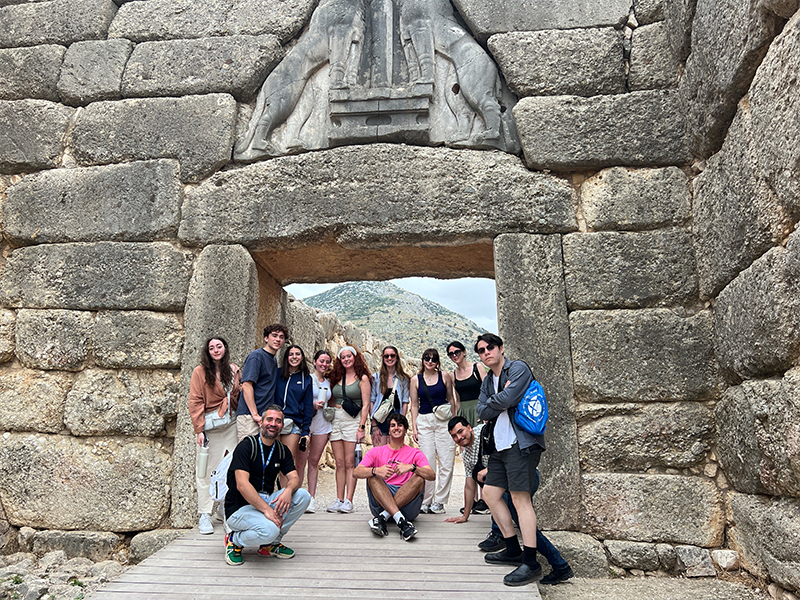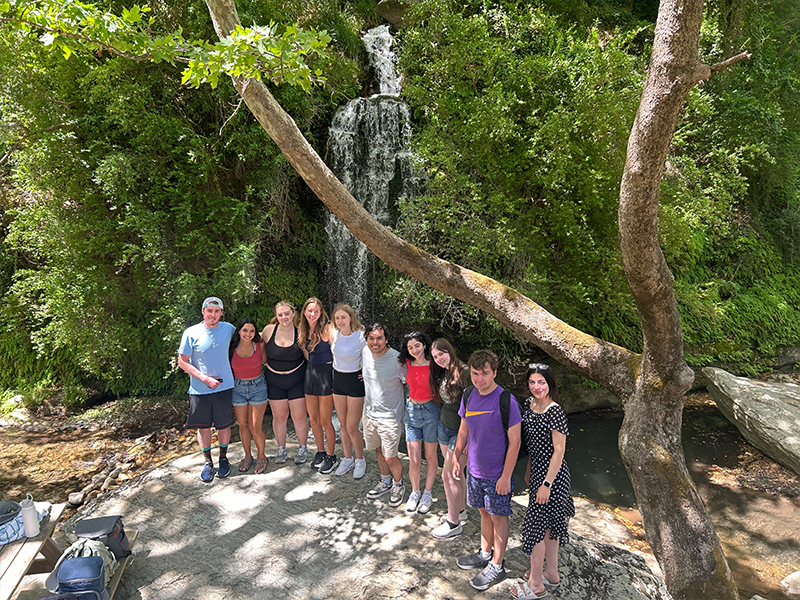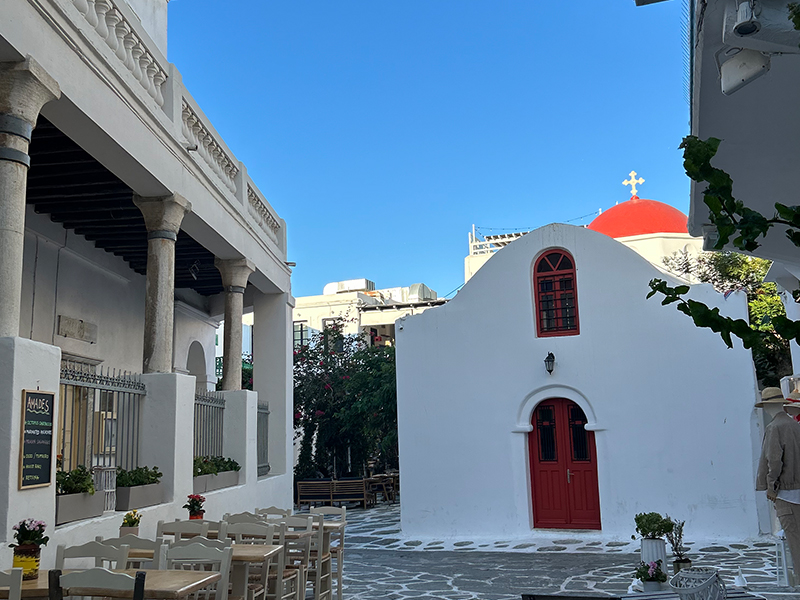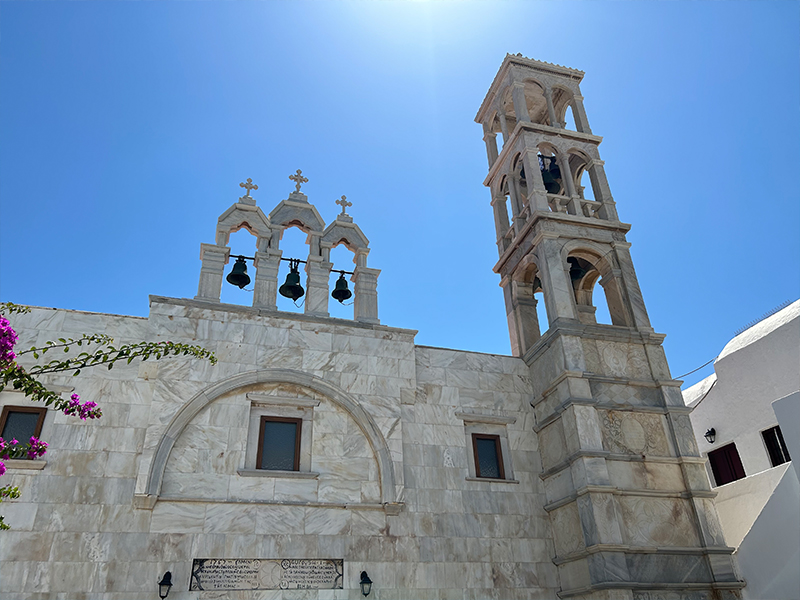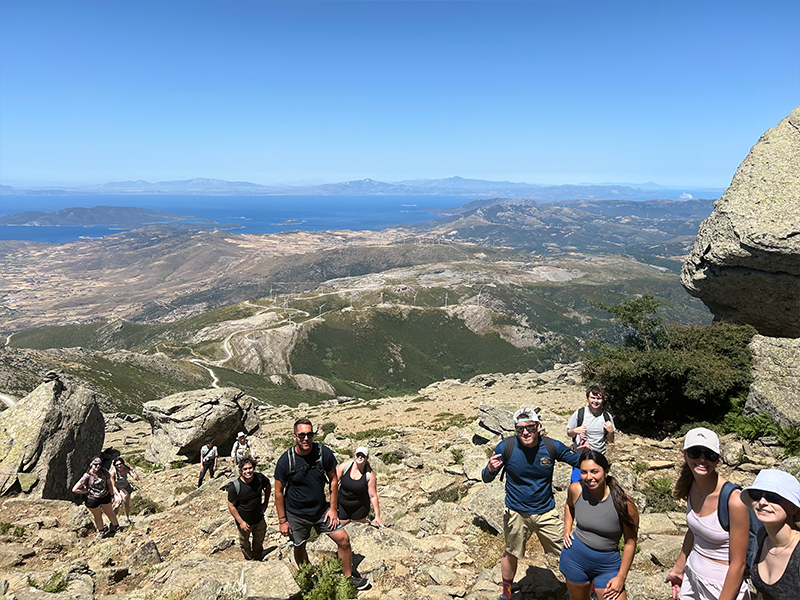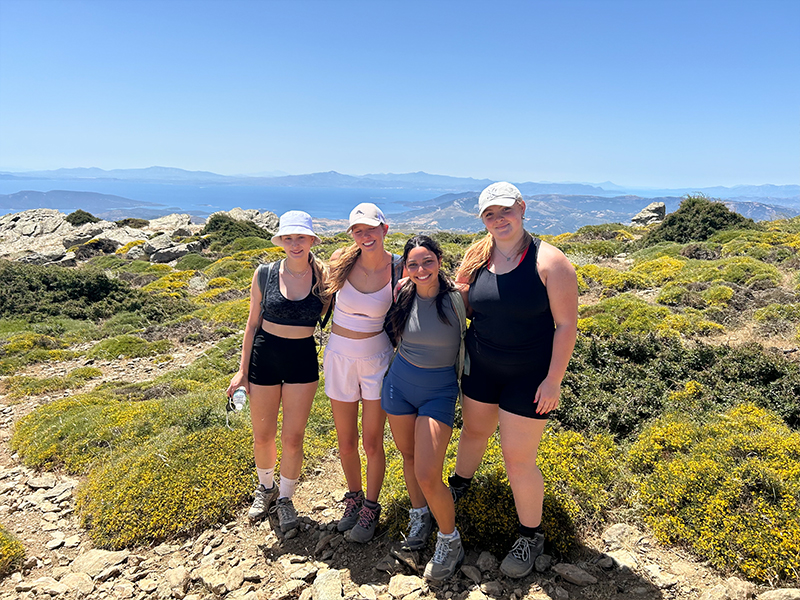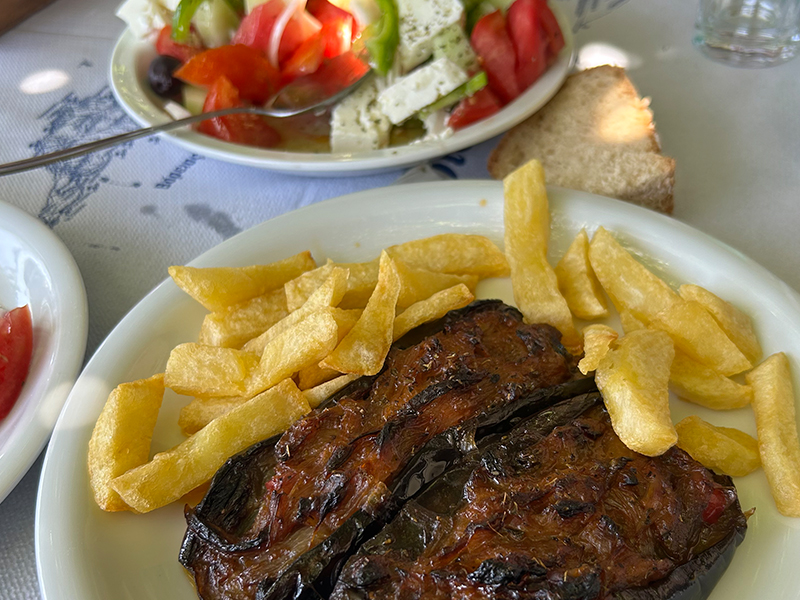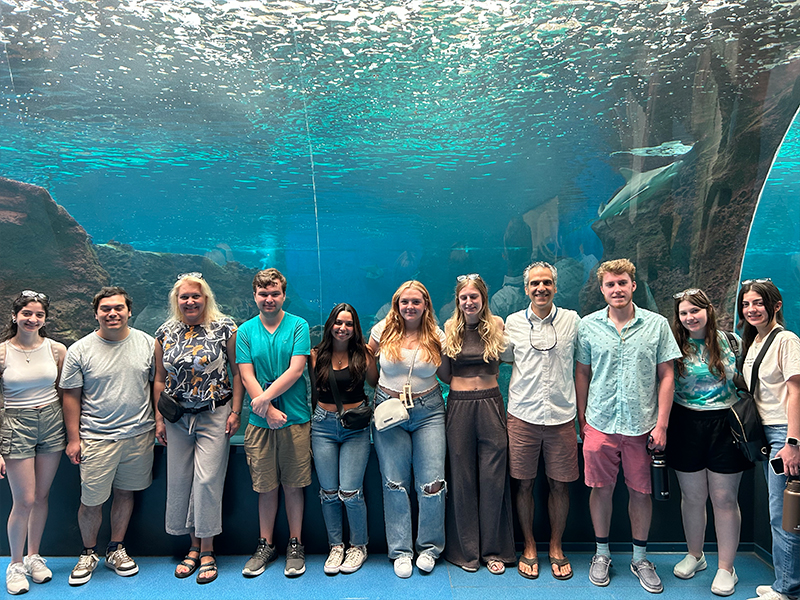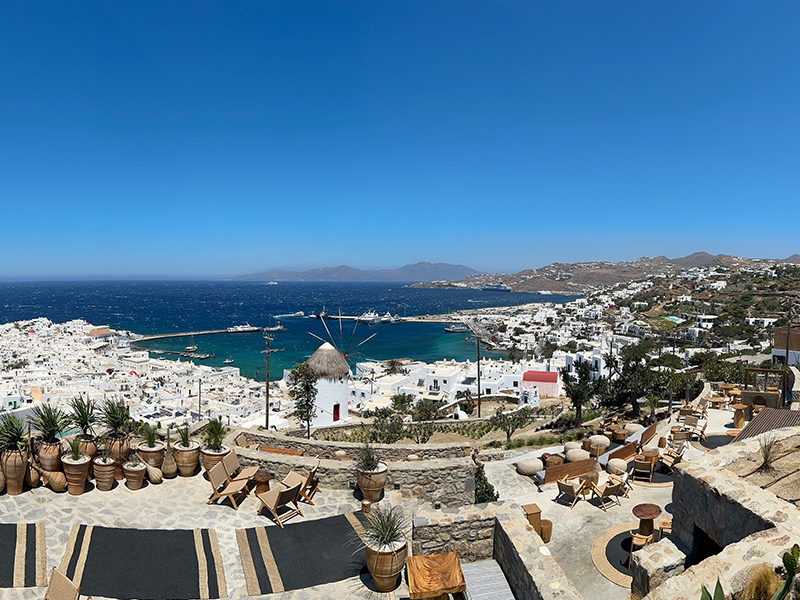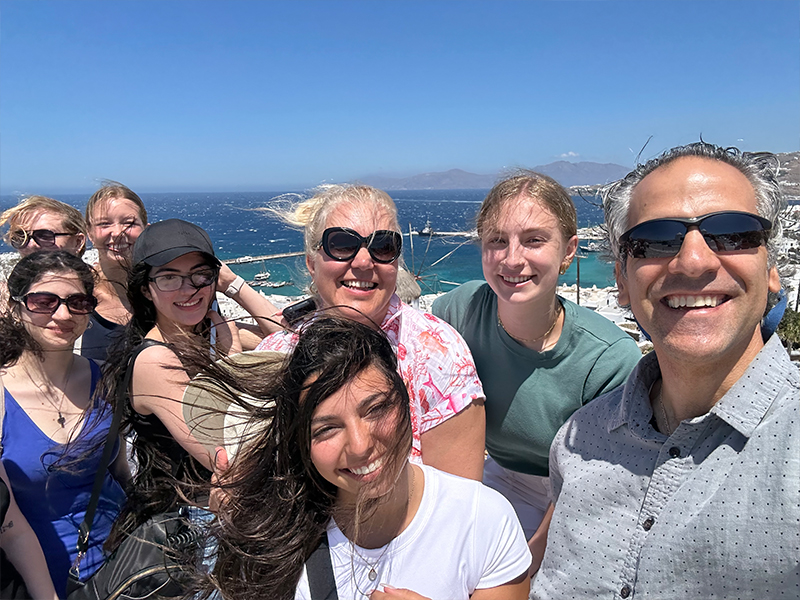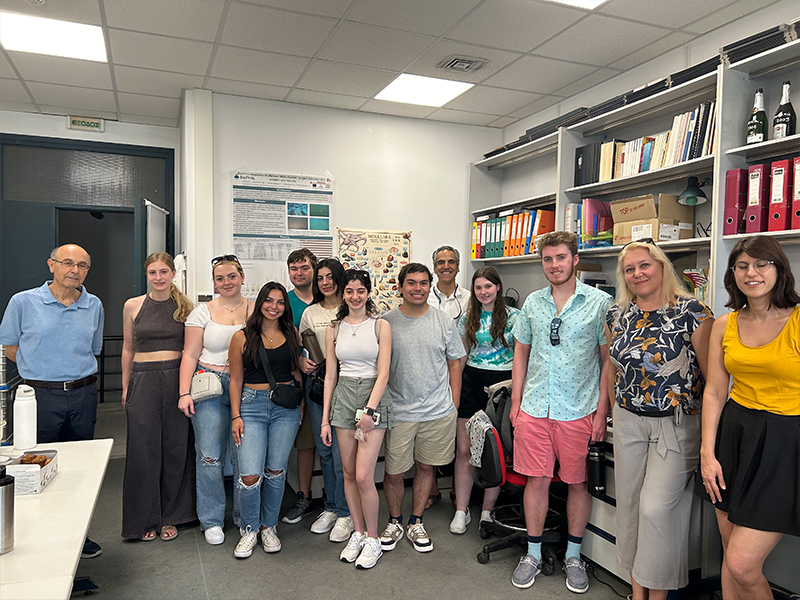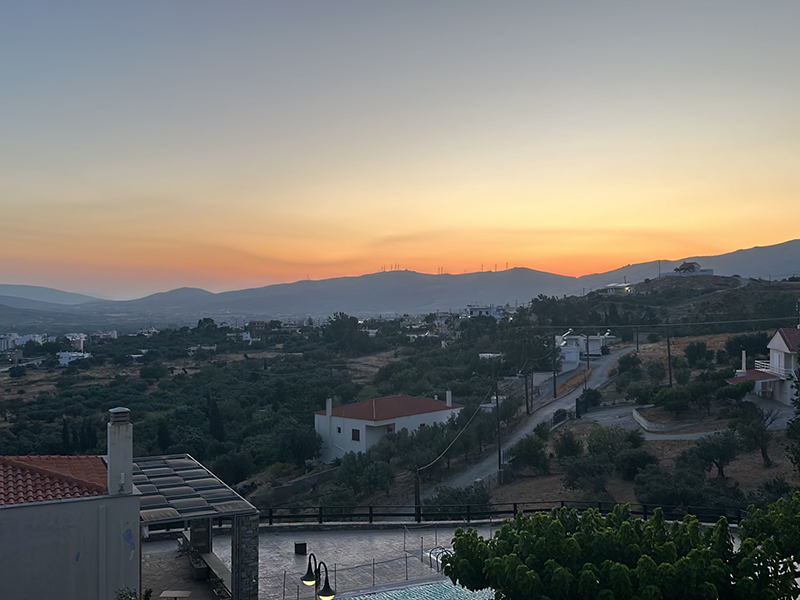Two groups of St. Joseph’s University, New York students studied abroad in Greece this summer, learning about its history and deepening their understanding of the land’s philosophical and physical worlds.
A group of Long Island Campus honors students explored the birthplace of Western philosophical ethics and delved into Greece’s ancient history, while a group of biology students explored the country’s unique ecosystem and terrain.
Read on to learn more about the unique global studies programs that saw students to immerse themselves into a past and present that’s different from our own.
Honors Trip
The Long Island Campus’ Honors Program explored the mainland of Greece from May 12–21, studying the philosophical and historical underpinnings of sites like Delphi, Olympia, seaside Nafplio, and Athens.
“The Honors trip serves as a capstone learning experience to our Long Island Honors Program,” said Wendy Turgeon, Ph.D., professor and chair of the philosophy department at SJNY, director of the Honors Program on the Long Island Campus, and leader of the trip.
After spending two years together in classrooms studying different subjects, the honors students celebrated by exploring the roots of Western Civilization in Greece.
“We visited classical sites and learned the history of this birthplace of democracy and its layers of civilization from the Mycenaeans, to the classical Greeks, through the Middle Ages and Ottoman rule to modern times,” Dr. Turgeon said. “The students enthusiastically entered into this adventure, and our guide offered them tips for exploring on their own. From hiking up the Palamidi Castle in Nafplion to sampling local seafood delicacies at a local taverna, they all participated in this perfect capstone adventure.”
James Blakeley, Ph.D., professor and chair of the history department at St. Joseph’s University and co-leader of the trip, shared Dr. Turgeon’s sentiment about the global studies program.
“The trip to Greece was an enriching, educational, and exciting experience for this year’s honors cohort,” he said. “We visited Delphi, home of the famous Oracle and Olympia, site of the ancient Olympic games, among other places. Students also had time to explore the picturesque first capital of modern Greece, Nafplion; try new foods; and swim in the beautiful Mediterranean Sea.”
Student Perspective
Brandon Ronquillo, a junior studying economics, history and adolescence education, enjoyed taking in all Greece had to offer.
“From the idyllic olive groves fostered a millennia ago to the beautiful yet timeworn edifices of limestone and marble that dot the mountains and hills of Greece, it is indeed an ancient place,” he said. “That, however, is not a complete picture. Greece is a place measured by time, met with countless layers of history from the classical to the modern.”
Isabella Fitzgerald felt the opportunity to explore Greece was incredible.
“Personally, I learned all about ancient Greek history, Greece’s culture, food, traditions and customs,” the junior history major said. “My favorite part of the trip was our time spent in Nafplion. We explored ancient Mycenaean ruins, and my peers and I took a boat ride around the coast and several islands. It was truly an experience I’ll never forget.”
James MacDonald, a junior marketing major in the dual degree program, described the experience as “very humbling.”
“The most important part of this trip, and the biggest thing I took away from it, was a greater appreciation for history and the culture of another nation, especially one as amazing as Greece,” he said. “It’s one thing to learn about the ancient Greeks and see pictures in a textbook, but it is completely different to see and experience it first hand.”
MacDonald shared that the experience brought to life his love to travel.
“For the Greece Honors Trip to be my first time out of the country, it really set the bar high,” he said. “Everything from the people I traveled with to the sights, meals, experiences, and history was incredible and has made me eager to experience different cultures and the history behind them.”
Science Without Borders
Biology majors who took the “Science Without Borders” course discovered the ecological and cultural diversity of Greece during their faculty-led trip June 14–27. They explored such Greek islands as Mykonos, Santorini, Crete, and Evia, as well as mainland Athens, for an unconventional, authentic and refreshing approach to learning.
“It is very important for young minds to expand their knowledge and experience firsthand, seeing how people live outside the United States,” shared Tetyana Delaney, Ph.D., a biology professor who co-lead the trip. “Some students had never traveled beyond the tristate area before, let alone abroad. They experienced things they had never done before, from customs to local food to hiking mountain peaks and gorges.”
Students had the chance to snorkel in the Mediterranean Sea, where they encountered a curious octopus. They hiked the mountainous chaparral terrain, exploring both terrestrial and marine habitats. They also enjoyed native cuisine and visited various historic sites and museums.
“Students participating in this program really expand their horizons and challenge their preconceived notions,” shared Konstantine Rountos, Ph.D., an associate professor of biology who leads the “Science Without Borders” trip each year. “Not only do students immerse themselves in another culture, but they get a chance to explore ancient landscapes and unique biodiversity.”

